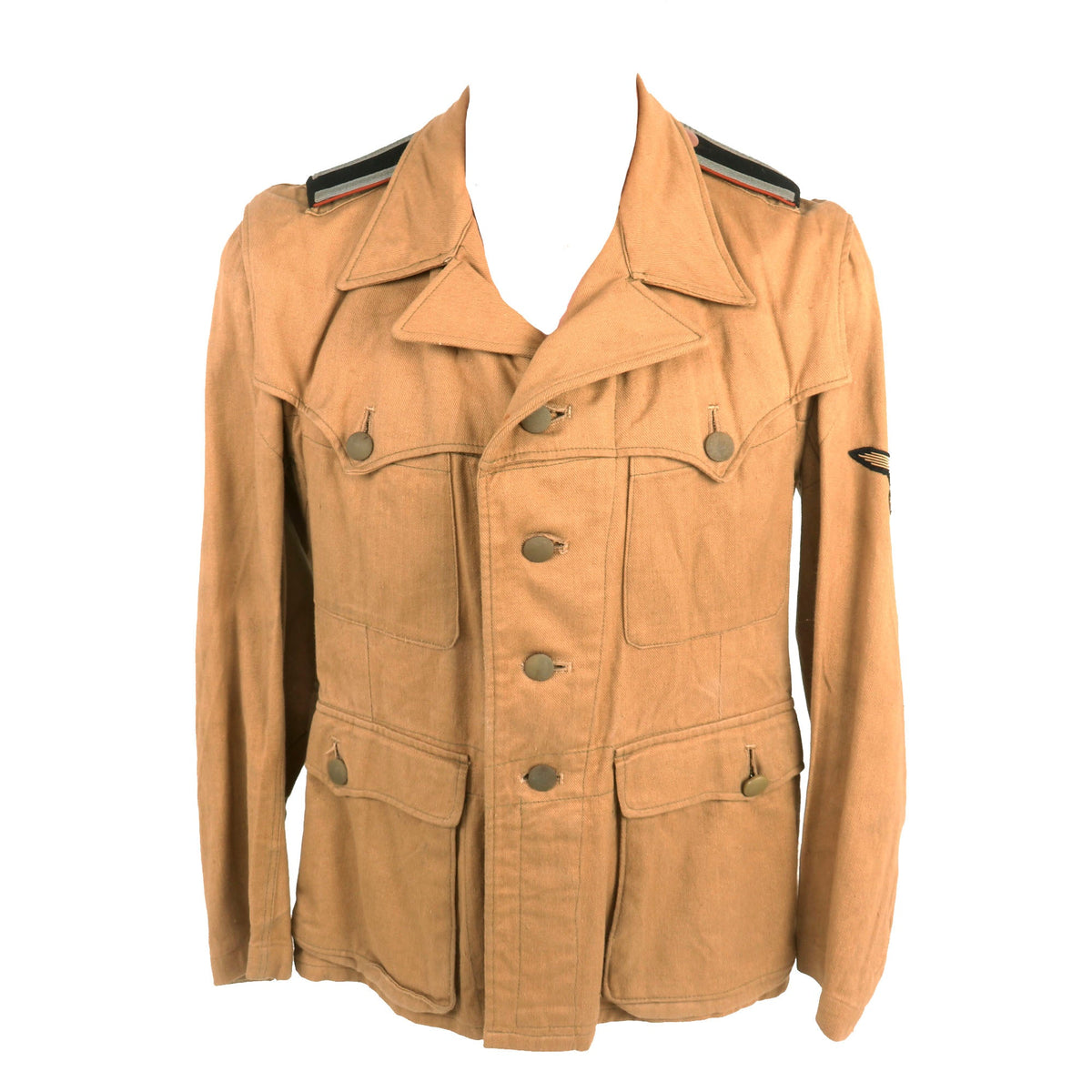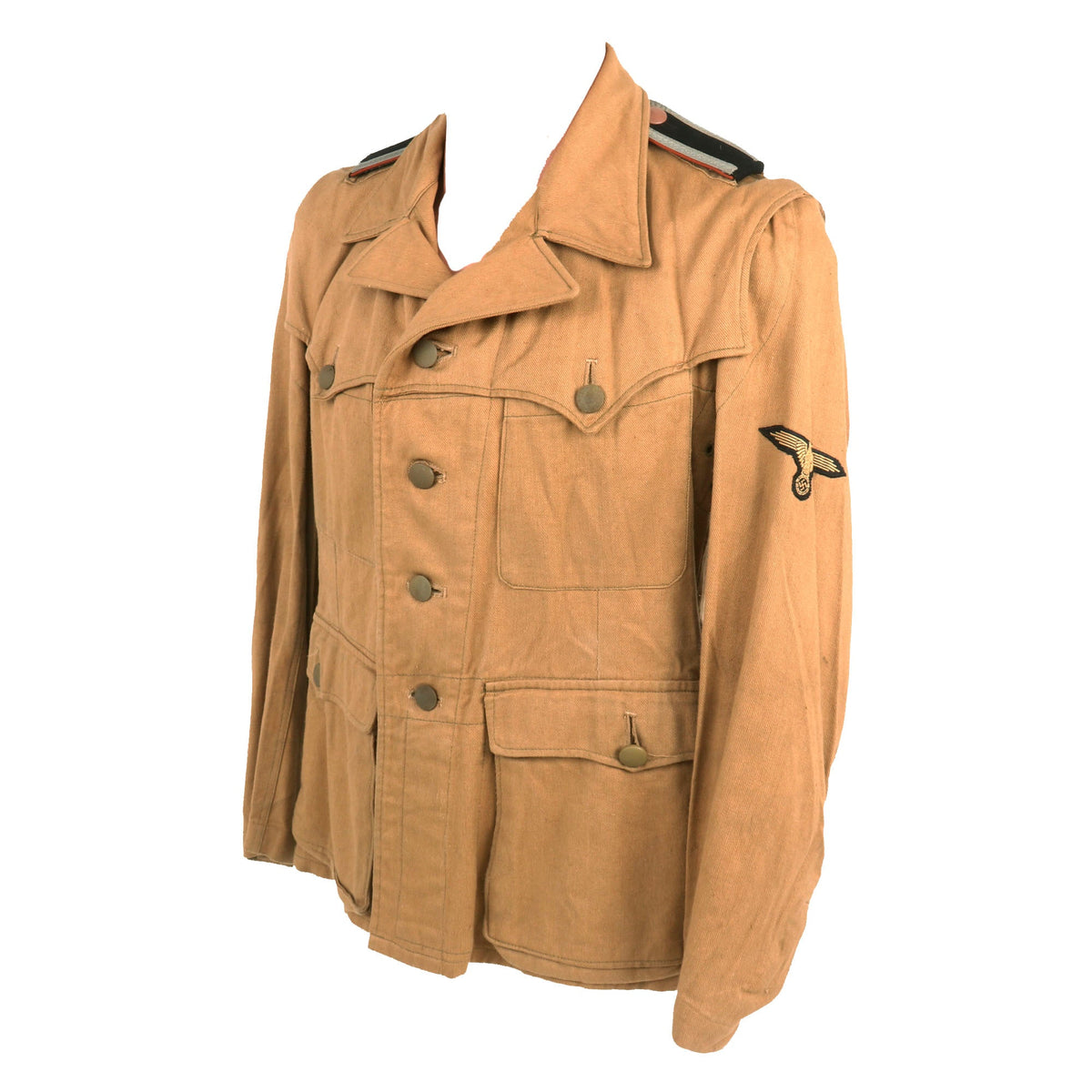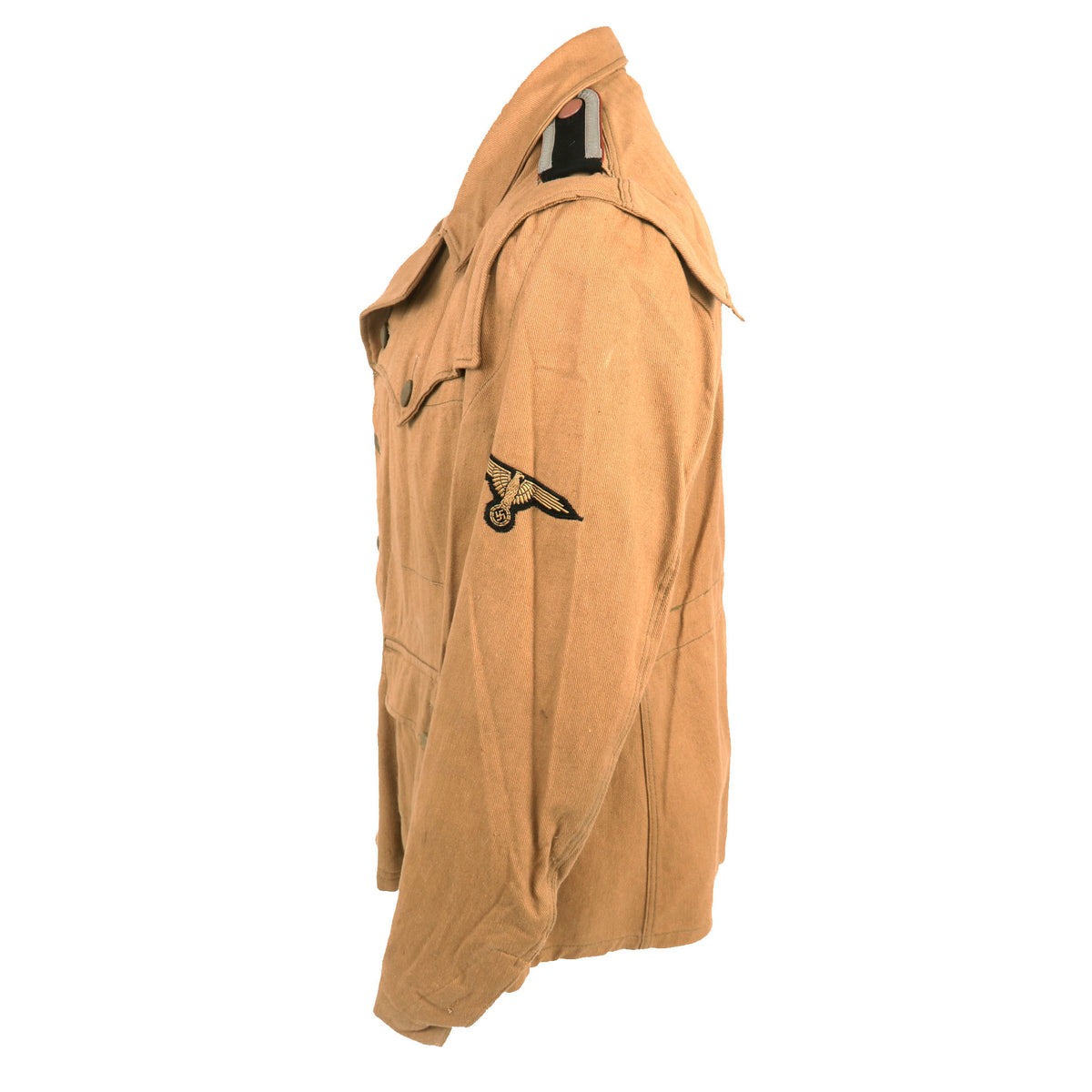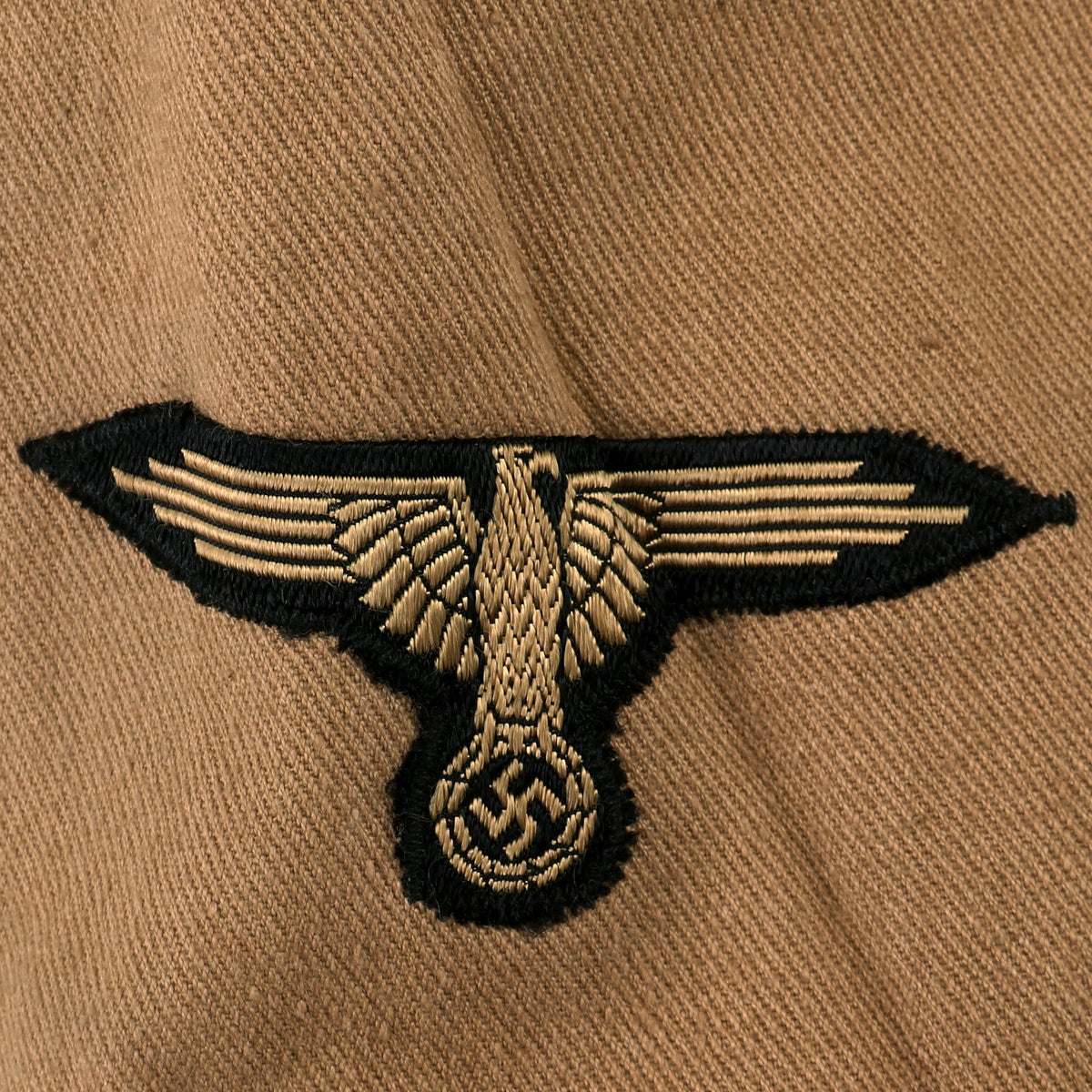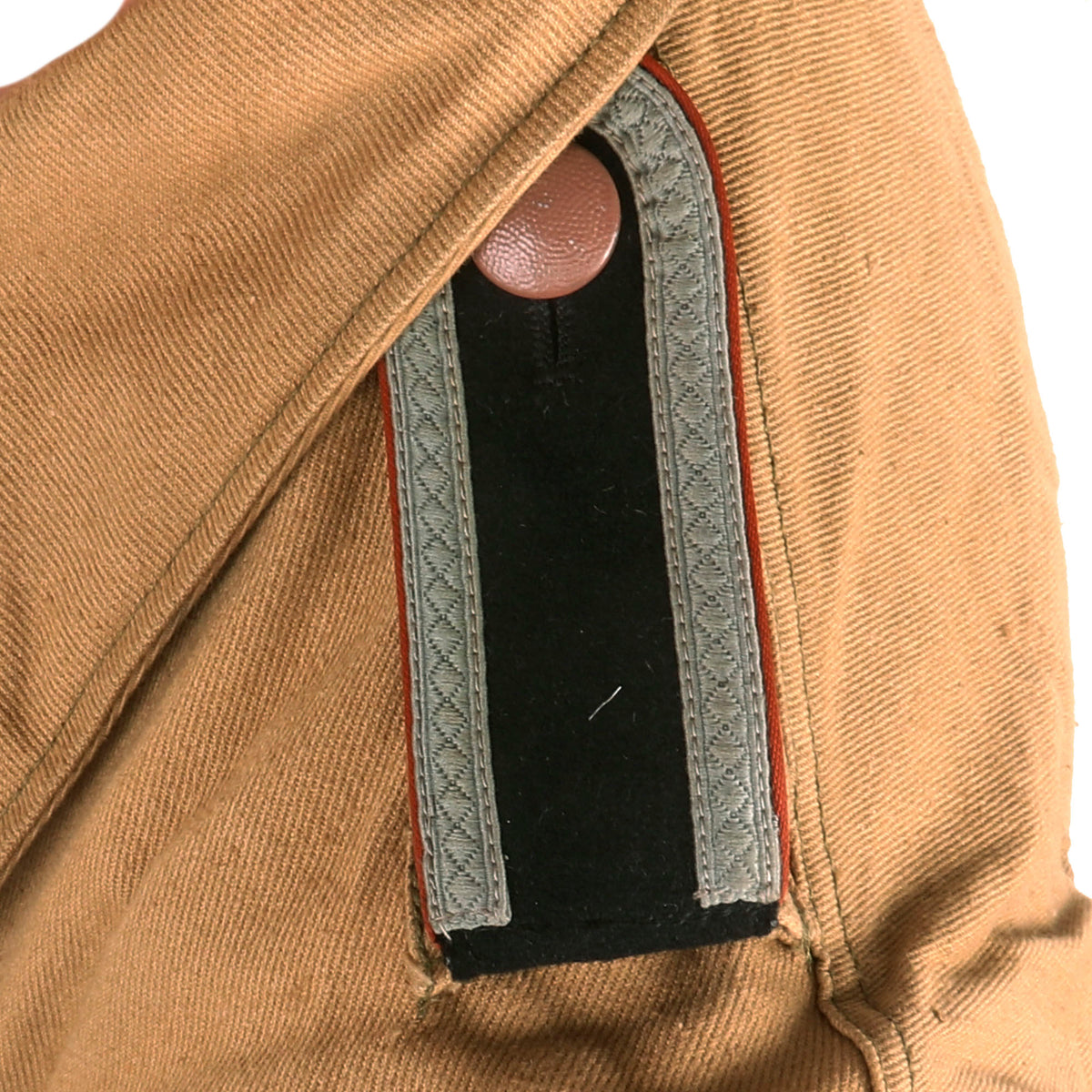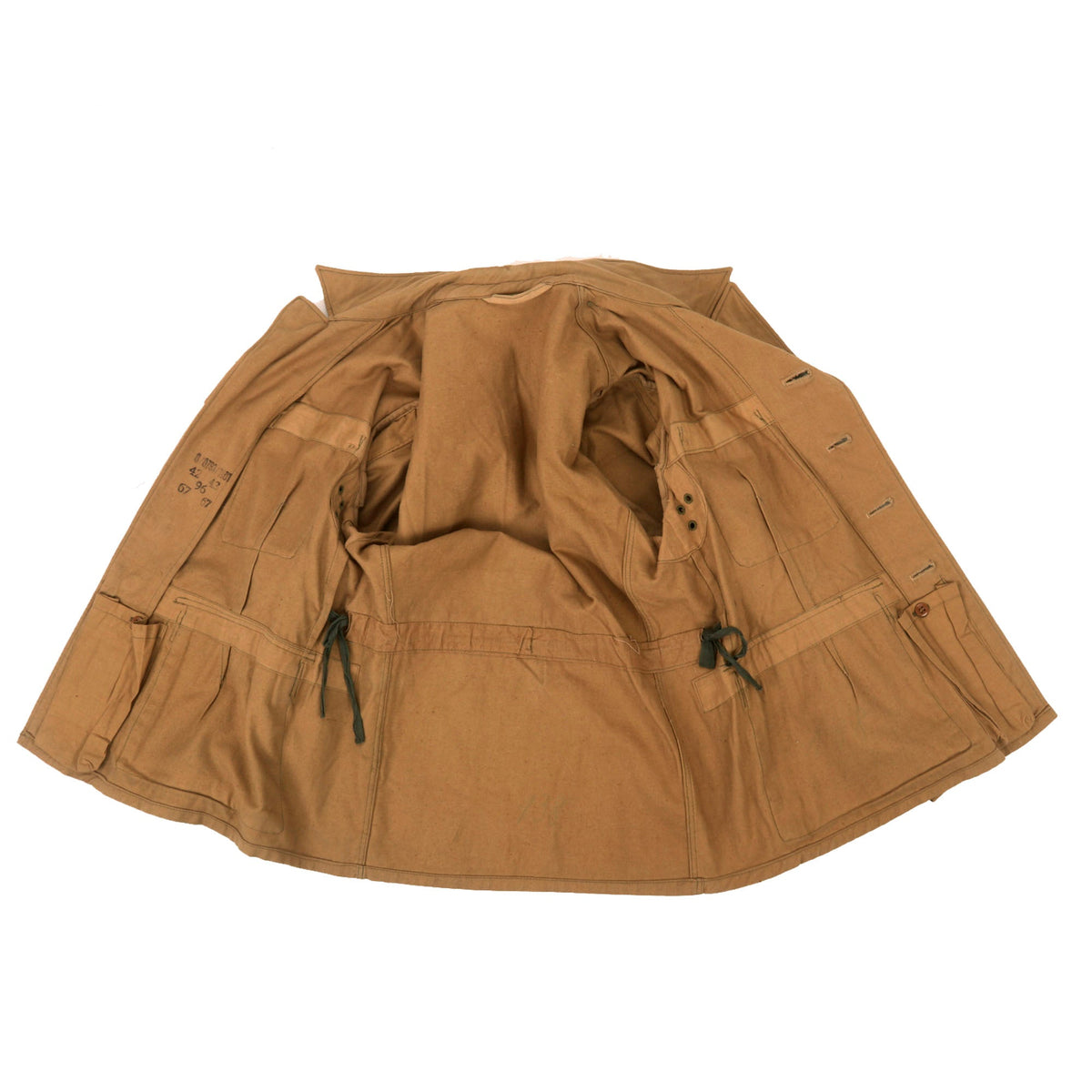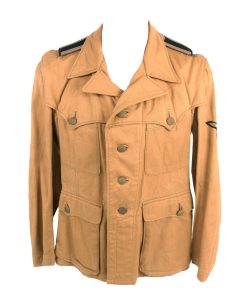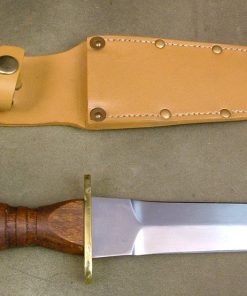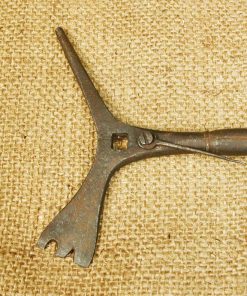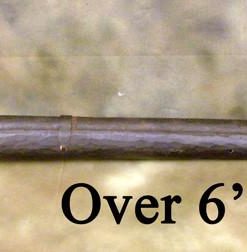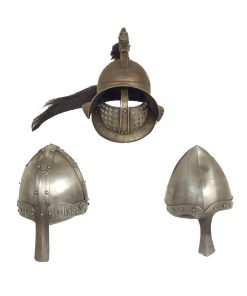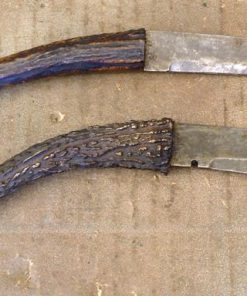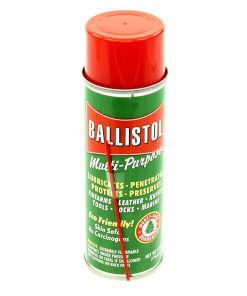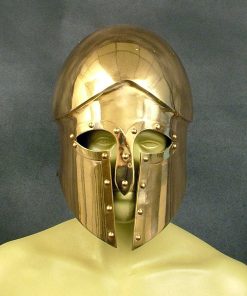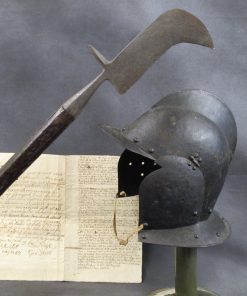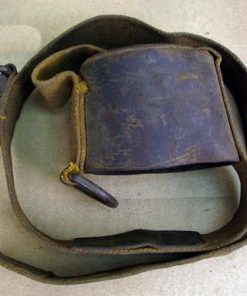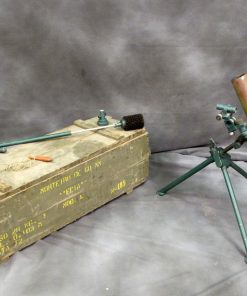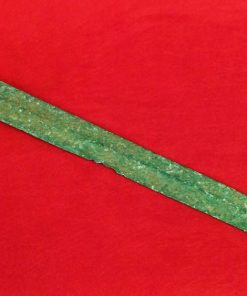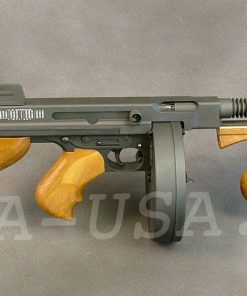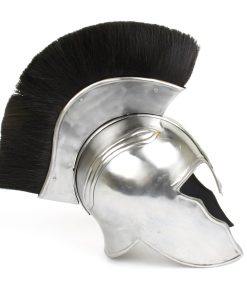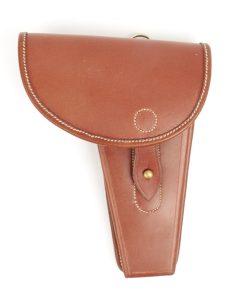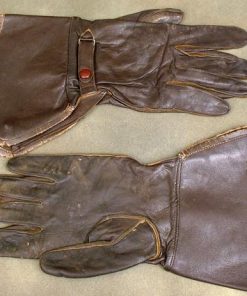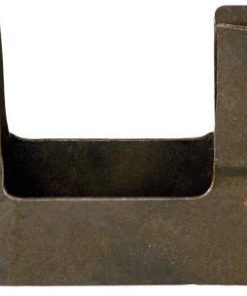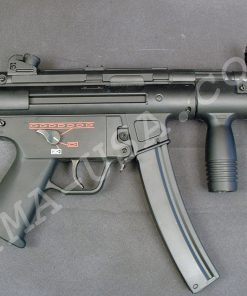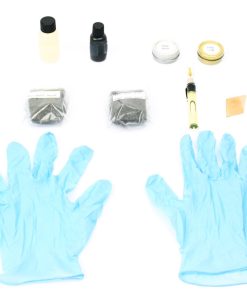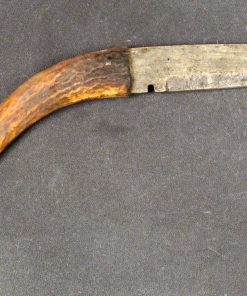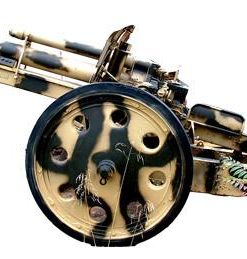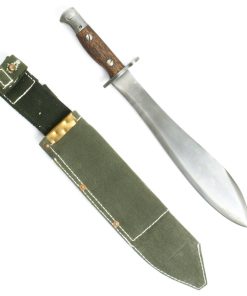Original German WWII Afrika Korps Waffen SS Reconnaissance SS-Unterscharführer NCO Tropical Uniform Tunic Original Items
$ 2.395,00 $ 598,75
Original Item: Only One Available. The SS (Schutzstaffel – ‘Protection Squadron’) was originally formed in 1925, ostensibly to act as a small, loyal bodyguard unit to protect the Führer, Adolf AH. Under the direction of the Reichsführer-SS Heinrich Himmler, the SS grew to be the most ruthless and feared organization of the 20th century. They were the vanguard of the NSDAP and eventually controlled nearly every function of German life and much of Occupied Europe. When WWII began in earnest, the SS-Verfügungstruppe (SS-VT) (SS Dispositional Troops) became the Waffen-SS (“Armed SS”), an official military branch of the SS organization. Its formations included men from NSDAP ruled Germany, along with volunteers and conscripts from both occupied and unoccupied lands.
This is a fantastic most likely unissued rare WWII German Afrika Korps Waffen SS Tropical uniform tunic, made from what feels like a denim or soft canvas twill material. It is definitely intended to be a more durable version of the Feldbluse than the wool versions in use during the beginning of the war, and was specifically designed for the hot climate of North Africa, such as in Libya, Tunisia, and Egypt. It is the correct Dunkelgelb (dark yellow) tan color used by other branches in the Tropical campaigns. As with most Waffen SS material however, it definitely differs from the uniforms used by the branches of the regular Wehrmacht Armed forces.
On this example the most obvious difference is an extra layer of fabric, almost like a cowl, attached over the shoulder area, with neatly scalloped edges. This was most likely intended to protect from the heat of the hot sun, while still allowing air circulation underneath. This was not adopted by other branches however, so we have no idea if it was effective at all.
The front of the tunic features 4 pockets with scalloped flaps, each retained by a button, though the chest pocket “flap” is actually part of the extra shoulder protection on the top of the tunic. None of the pockets are pleated, though they are definitely quite large. The front closure features 4 pebbled buttons painted with the correct Tropical dunkegelb color, and unlike most tunics there are no loops to secure the collar: it was meant to be left open. The buttons on this tunic are retained by round circlips from the rear, and all are only weakly magnetic, probably made from zinc. All look to be maker marked on the back. The interior is not lined, just has some reinforcement under the sleeves where the ventilation grommets are located.
There are original maker and size markings ink stamped on the right interior on the flap over the button circlips:
0/0783/0101
42 43
96
67 67
The tunic is adorned with the usual rank and branch insignia used on German Waffen SS NCO tunics. The Waffen SS Tropical Sleeve Eagle is the correct NCO embroidered type with Beige threads on a black background, and is very neatly hand stitched to the sleeve in a fashion typical of wartime German tailor work. The button-attached style NCO Schulterklappen (Shoulder Boards or Epaulettes) are piped in kupferbraun (copper-brrown), the correct Waffenfarbe (Corps Color) for Reconnaissance in the Waffen SS. Inside the piping is a single row of 10mm NCO tress around the outside with no border at the edge, indicating the lowest NCO rank of SS-Unterscharführer (SS-Junior squad leader), equivalent to a Heer Unteroffiziere or a U.S. Army Sergeant.
A fantastic example of a very hard to find German WWII Waffen SS Tropical tunic, ready to add to your collection!
Approximate Measurements:
Collar to shoulder: 9.5″
Shoulder to sleeve: 23.5”
Shoulder to shoulder: 15.5”
Chest width: 19″
Waist width: 18″
Hip width: 21″
Front length: 29.5″
The Afrika Korps or German Africa Corps (German: Deutsches Afrikakorps, DAK was the German expeditionary force in Africa during the North African Campaign of World War II. First sent as a holding force to shore up the Italian defense of their African colonies, the formation fought on in Africa, under various appellations, from March 1941 until its surrender in May 1943. The term “Afrika Korps” is pseudo-German (so-called “cod-German”), deriving from an incomplete German title. The German term referred solely to the initial formation, the Deutsches Afrikakorps (DAK), which formed part of the Axis command of the German and Italian forces in North Africa. The name stuck, with both news media and Allied soldiers, as the name for all subsequent German units in North Africa. The unit is known for having been commanded by Field Marshal Erwin Rommel.
The Allgemeine-SS, (General-SS), was originally formed in May 1923 as the Stosstrupp Adolf AH, (Shock Troops Adolf AH), and was redesignated Schutzstaffel, (Protection Squad), in April 1925 with the official acceptance of the name verified on the second anniversary of the failed Munich “Beer-Hall” Putsch on November 9TH 1925. On January 6TH 1929 Heinrich Himmler was appointed as Reichsführer-SS, (National Leader {of the} SS), and on July 20TH 1934 shortly after the, June 30TH 1934, purge of the SA, Sturm Abteilung, (Storm Troopers) on the “Night of the Long Knives”, the SS was rewarded by AH by being granted the status of an independent organization under direct control of the NSDAP, Nationalsozialistische Deutsche Arbeiterpartei, (National Socialist German Worker’s Party).
The SS developed the distinctive SS style cap skull and cross bones on October 6TH 1934 and introduced the SS pattern national cap eagle in February 1936. After their introductions the skull and eagle were to be worn on all forms of SS headgear. In 1944 the SS developed a single piece of cap insignia which incorporated both the skull and eagle on a one piece trapezoid base for wear on the M43 field cap. Originally these trapezoidal pieces of insignia were produced in a machine woven version until a final, embroidered version was introduced in late 1944. The first versions of the trapezoidal cap insignia featured dual rows of teeth in the skull while later versions only had a single row of teeth. Panzer personnel’s cap trapezoids were produced with a black base to match the color of the cap it was to be worn on.
Fast Shipping with Professional Packaging
Thanks to our longstanding association with UPS FedEx DHL, and other major international carriers, we are able to provide a range of shipping options. Our warehouse staff is expertly trained and will wrap your products according to our exact and precise specifications. Prior to shipping, your goods will be thoroughly examined and securely secured. We ship to thousands clients each day across multiple countries. This shows how we're dedicated to be the largest retailer on the internet. Warehouses and distribution centres can be located throughout Europe as well as the USA.
Note: Orders with more than one item will be assigned a processing date depending on the item.
Before shipping before shipping, we'll conduct a thorough inspection of the items you have ordered. Today, the majority of orders will be delivered within 48 hours. The delivery time will be between 3-7 days.
Returns
The stock is dynamic and we cannot completely manage it because multiple stakeholders are involved, including our factory and warehouse. So the actual stock may alter at any time. It's possible that you may not receive your order once the order has been made.
Our policy is valid for a period of 30 days. If you don't receive the product within 30 days, we are not able to issue a refund or an exchange.
You can only return an item if it is unused and in the same state as the day you received it. You must have the item in its original packaging.
Related products
Uncategorized
Uncategorized
Uncategorized
Uncategorized
Uncategorized
Uncategorized
Armored Burgonet Helmet & Polearm from Scottish Castle Leith Hall Circa 1700 Original Items
Uncategorized
Angolan Rebel 1970s era 60mm Inert Display Mortar from Angolan Civil War Original Items
Uncategorized
Uncategorized
Uncategorized
Uncategorized
Australian WWII Owen MK1 Machine Carbine SMG Custom Fabricated Replica with Sling Original Items
Uncategorized
Uncategorized
Uncategorized
Band of Brothers ORIGINAL GERMAN WWII Le. F.H. 18 10.5cm ARTILLERY PIECE Original Items
